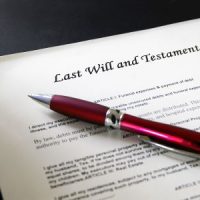How to Challenge a Will

New York law gives you the right to decide who will become the beneficiaries of your estate. If you die without a will, the probate court will distribute your property to your closest surviving relatives, and only if the court reasonably determines that you do not have any surviving relatives who can be located does the state inherit your property. In other words, you have the right to disinherit any family member you choose to disinherit for any reason you wish. With the exception of your spouse, no family member can claim more property from your estate than your will indicates. Disinherited family members do, however, have the right to object to the will during probate. The probate court will weigh the evidence to determine whether the will meets the formal requirements for validity and whether the decedent truly signed the will voluntarily and understood what he or she was signing. For help writing an objection-proof will and communicating with your family about it, contact a Bronx estate planning lawyer.
The Person Objecting to the Will Bears the Burden of Proof
Probate begins when someone presents the decedent’s will to the probate court and files a petition to open the estate for probate; this person is called the petitioner. The petitioner may or may not be a beneficiary of the will, and the will may or may not indicate that this person should be the personal representative of the estate. The petitioner then issues public notices that the estate is being opened for probate, and anyone who wishes to object to the will has the chance to do so.
The probate court will not set aside a will simply because it receives an objection. It is the objectant’s duty to show why the court should not consider the will valid and should accept a different version of the will or should administer the estate as if the decedent had died without a will. The objectant may do this by presenting supporting documents and written statements from people who witnessed events that show that the decedent was subjected to undue influence or lacked capacity to modify the will at the time that he or she made modifications.
The court may ask witnesses, beneficiaries, or even the petitioner or the objectant themselves to give depositions to help the court determine whether or not the will is valid. At a deposition, the deponent (the person giving the deposition) must swear an oath to tell the whole truth, much as witnesses do when testifying at a trial. Both parties’ lawyers can ask the deponent questions. A court reporter records a transcript of the trial, and the parties in the case may use the whole transcript or parts of it as evidence. If you lie during a deposition, you could be charged with perjury.
Schedule a Confidential Consultation With a Bronx Estate Planning Attorney
An estate planning lawyer can help you write your will in a way that satisfies all the legal requirements. Contact Cavallo & Cavallo in the Bronx, New York to set up a consultation.
Source:
casetext.com/regulation/new-york-codes-rules-and-regulations/title-22-judiciary/subtitle-a-judicial-administration/chapter-ii-uniform-rules-for-the-new-york-state-trial-courts/part-207-uniform-rules-for-the-surrogates-court/section-20719-probate-filing-of-will-depositions-proof-by-affidavit
